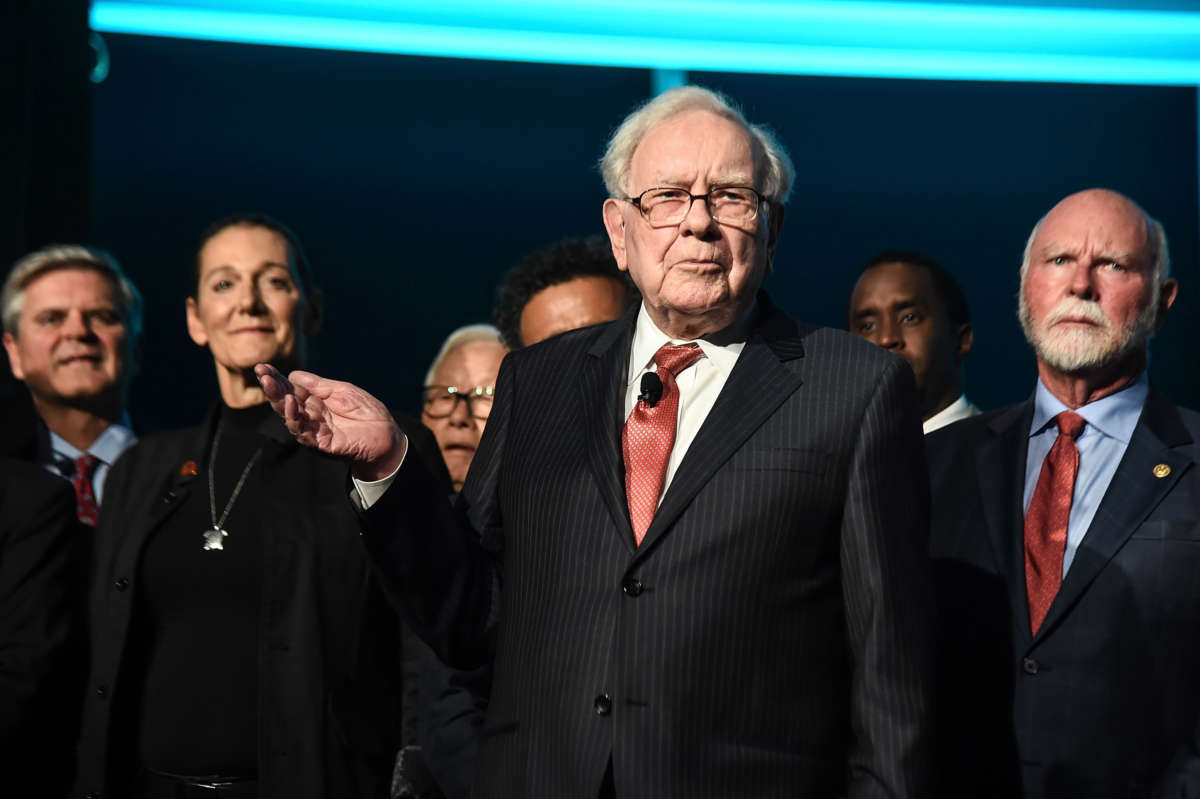Support justice-driven, accurate and transparent news — make a quick donation to Truthout today!
Billionaire Warren Buffett, one of the wealthiest men in the world and the CEO of BNSF Railway’s parent company, saw his wealth jump by nearly $1.4 billion in a single day earlier this week, a sum that could easily fund 15 days of paid sick leave for every rail worker in the United States.
BNSF is one of the major railroad giants refusing to budge in contract negotiations with rail unions as they fight for 15 days of paid sick leave. Under a White House-brokered contract that major rail unions have recently voted to reject, rail workers would not receive a single paid sick day.
A nationwide rail strike or lockout with major implications for the U.S. economy could begin as soon as December 9 if rail companies and unions don’t reach a contract deal.
“In one day, Mr. Buffett made twice as much money as it would cost to guarantee 15 paid sick days a year to every rail worker in America,” Sen. Bernie Sanders (I-Vt.) tweeted Wednesday. “The greed of the rail industry must end.”
Warren Gunnels, Sanders’ staff director, reiterated that message Thursday, writing, “Can’t stop thinking about how Warren Buffett, the owner of BNSF Rail, made more money in one day than it would cost to guarantee 15 paid sick days to rail workers.”
“Buffett could avert a rail strike today by giving workers what they need: paid sick days,” Gunnels added. “That’s how you give thanks.”
Rail companies have estimated that it would cost roughly $688 million a year to provide 15 days of paid sick leave to rail employees, who work long and erratic hours and are often expected to be on call 24 hours a day. To make matters worse, rail companies’ attendance policies punish workers for calling out sick or taking a day off to see the doctor.
“Buffett’s BNSF, for example, has started using a convoluted system called ‘Hi-Viz’ under which workers start with a point balance then lose points if they’re unavailable to work because they’re sick, have a family emergency, or other reasons,” Mother Jones reported in September. “If their balance hits zero, they get a 10-day suspension, and a 20-day suspension if it happens again. Reaching zero for the third time in a two-year period means getting fired.”
BNSF has urged Congress to intervene and force rail workers to accept a contract with no paid sick days, something Senate Republicans tried to do via the unanimous consent process in mid-September. Sanders, the chair of the Senate Budget Committee, blocked the GOP legislation, allowing the collective bargaining process to continue.
With the possibility of a nationwide strike growing after the largest union of rail workers in the U.S. voted to reject the White House-brokered contract deal earlier this week, Congress is once again facing calls from the hugely profitable railroad industry to get involved.
“Rail union leaders are increasingly grim that they’ll be able to reach a contract agreement with freight carriers before Congress has to step in,” Politico reported earlier this week. “Michael Baldwin, president of the Brotherhood of Railroad Signalmen, said Tuesday there had been no progress ‘whatsoever’ at the bargaining table since that union rejected its tentative agreement on October 26. Union officials have been meeting daily with the railroads over Zoom this week, but Baldwin said discussions typically last only 15 minutes and not much is accomplished.”
Jeremy Ferguson, president of the Transportation Division of the International Association of Sheet Metal, Air, Rail, and Transportation Workers, said in a statement earlier this week that “the ball is now in the railroads’ court.”
“They can settle this at the bargaining table,” Ferguson added. “But, the railroad executives who constantly complain about government interference and regularly bad-mouth regulators and Congress now want Congress to do the bargaining for them.”
Media that fights fascism
Truthout is funded almost entirely by readers — that’s why we can speak truth to power and cut against the mainstream narrative. But independent journalists at Truthout face mounting political repression under Trump.
We rely on your support to survive McCarthyist censorship. Please make a tax-deductible one-time or monthly donation.
